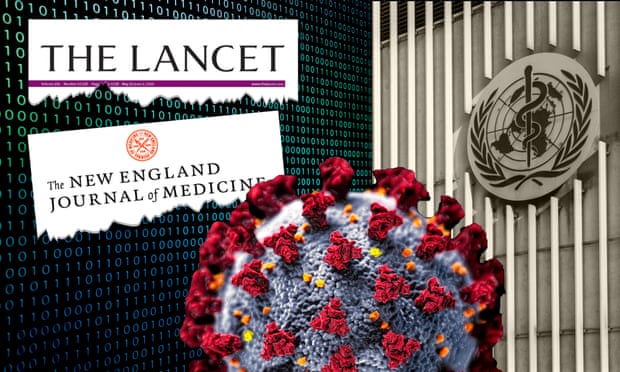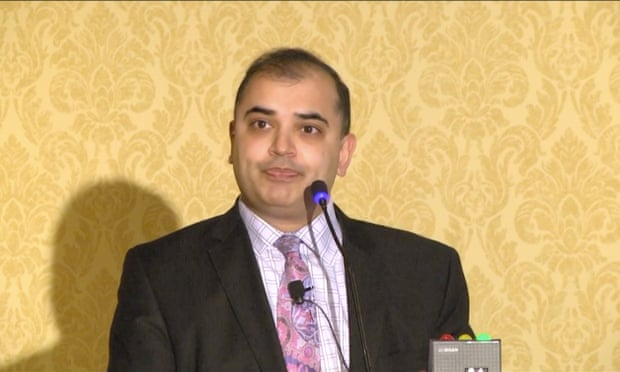Trump's Operation Warp Speed selects Pfizer, Merck, AstraZeneca and Moderna as vaccine finalists
What Galvani Bioelectronics along with the UK-based GSK and Alphabet Inc. are in reality working on after releasing their respective intellectual property are developing injectables. GSK management doesn't refer to itself as a pharmaceutical company, instead, GSK refers to itself as a "global healthcare company." When you visit Galvani Bioelectronics' website, there is no mention of either Alphabet Inc. or Google. Despite accusations of being called part of the "cult of milieu", technologists are working to place in the human body through injectables, tiny electronic sensors with unknown consequences under cover of "healthcare" calling them "vaccines.
What we have here is the implementation of an Alphabet Inc. (Google) office system in your body using GSK's bioelectronics. Placing a physical object in your body means that it can be claimed. Do people realize the consequences of this and where this is all heading? This isn't about healthcare which is the big sign you see hanging from big tech's door taking over the vaccine industry, it is big tech being able to remote control your "internal systems." Fine tune and tweak your DNA with nanoparticles and who knows what else under the pretext of "healthcare."
Homework assignment: Nanoparticle Protein Corona
Vaccination: how the West invades the world
If President Trump's goal is not to chip the American people through vaccines, why was the head of research at GlaxoSmithKline appointed whois an expert in bioelectronics research to push for injectables? Between FASAB 56 and big tech working on injectables, what exactly won't these technologists attempt to bring about? There is absolutely no transparency with the defense budget and we're supposed to simply take their word for it on healthcare and vaccines? What are injectables? Could be anything from injectable "credit cards" and surveillance trackers to nanoparticles and DNA altering "medicines." These are not vaccines and this is not medicine. The pharma-big tech companies creating these injectables should be subject to full liability for people who are likely going to be disabled and killed. That's not going to happen and explains why they want to call them "vaccines" which the big Pharma cartels have already released themselves from liability.
"'A lot of what is published [in prestigious medical science journals] is incorrect.' I'm not allowed to say who made this remark because we were asked to observe Chatham House rules." -- Dr Richard Horton, editor-in-chief, The Lancet#LancetGatehttps://t.co/4dmFJkBmBV— Jon Rappoport (@jonrappoport) June 7, 2020
Where do we start looking to understand what is going on here? Start looking at UK organizations like the Wellcome Trust, Chatham House and GSK. There is a trio worthy of full transparency and exposure. This isn't scandalous because it is business.
________
Source: The Lancet
Offline: What is medicine's 5 sigma?
Richard Horton | Published: April 11, 2015 | DOI: https://doi.org/10.1016/S0140-6736(15)60696-1
"A lot of what is published [in prestigious scientific medial journals] is incorrect." I'm not allowed to say who made this remark because we were asked to observe Chatham House rules. We were also asked not to take photographs of slides. Those who worked for government agencies pleaded that their comments especially remain unquoted, since the forthcoming UK election meant they were living in "purdah"—a chilling state where severe restrictions on freedom of speech are placed on anyone on the government's payroll. Why the paranoid concern for secrecy and non-attribution? Because this symposium—on the reproducibility and reliability of biomedical research, held at the Wellcome Trust in London last week—touched on one of the most sensitive issues in science today: the idea that something has gone fundamentally wrong with one of our greatest human creations.
The case against science is straightforward: much of the scientific literature, perhaps half, may simply be untrue. Afflicted by studies with small sample sizes, tiny effects, invalid exploratory analyses, and flagrant conflicts of interest, together with an obsession for pursuing fashionable trends of dubious importance, science has taken a turn towards darkness. As one participant put it, "poor methods get results". The Academy of Medical Sciences, Medical Research Council, and Biotechnology and Biological Sciences Research Council have now put their reputational weight behind an investigation into these questionable research practices. The apparent endemicity of bad research behaviour is alarming. In their quest for telling a compelling story, scientists too often sculpt data to fit their preferred theory of the world. Or they retrofit hypotheses to fit their data. Journal editors deserve their fair share of criticism too. We aid and abet the worst behaviours. Our acquiescence to the impact factor fuels an unhealthy competition to win a place in a select few journals. Our love of "significance" pollutes the literature with many a statistical fairy-tale. We reject important confirmations. Journals are not the only miscreants. Universities are in a perpetual struggle for money and talent, endpoints that foster reductive metrics, such as high-impact publication. National assessment procedures, such as the Research Excellence Framework, incentivise bad practices. And individual scientists, including their most senior leaders, do little to alter a research culture that occasionally veers close to misconduct.
Please go to The Lancet to read the entire article.
________
_______Now The Guardian's investigative piece on #LancetGate.— James Todaro, MD (@JamesTodaroMD) June 3, 2020
This is exploding into one of the most twisted and unbelievable medical scandals of the decade.https://t.co/v8LiMUAa4Y pic.twitter.com/wjaQdxLyHO
Source: The Guardian
Surgisphere: governments and WHO changed Covid-19 policy based on suspect data from tiny US company
Surgisphere, whose employees appear to include a sci-fi writer and adult content model, provided database behind Lancet and New England Journal of Medicine hydroxychloroquine studies
June 3, 2020 | Melissa Davey in Melbourne and Stephanie Kirchgaessner in Washington and Sarah Boseley in London
A tiny US company, Surgisphere, is behind flawed data which led to governments and the world health organisation changing health policy Photograph: Anthony Brown/Alamy Stock Photo
The World Health Organization and a number of national governments have changed their Covid-19 policies and treatments on the basis of flawed data from a little-known US healthcare analytics company, also calling into question the integrity of key studies published in some of the world's most prestigious medical journals.
A Guardian investigation can reveal the US-based company Surgisphere, whose handful of employees appear to include a science fiction writer and an adult-content model, has provided data for multiple studies on Covid-19 co-authored by its chief executive, but has so far failed to adequately explain its data or methodology.
Data it claims to have legitimately obtained from more than a thousand hospitals worldwide formed the basis of scientific articles that have led to changes in Covid-19 treatment policies in Latin American countries. It was also behind a decision by the WHO and research institutes around the world to halt trials of the controversial drug hydroxychloroquine. On Wednesday, the WHO announced those trials would now resume.
Two of the world's leading medical journals – the Lancet and the New England Journal of Medicine – published studies based on Surgisphere data. The studies were co-authored by the firm's chief executive, Sapan Desai.
Late on Tuesday, after being approached by the Guardian, the Lancet released an “expression of concern” about its published study. The New England Journal of Medicine has also issued a similar notice.
An independent audit of the provenance and validity of the data has now been commissioned by the authors not affiliated with Surgisphere because of "concerns that have been raised about the reliability of the database".
Questions raised over hydroxychloroquine study which caused WHO to halt trials for Covid-19
The Guardian's investigation has found:
• A search of publicly available material suggests several of Surgisphere's employees have little or no data or scientific background. An employee listed as a science editor appears to be a science fiction author and fantasy artist whose professional profile suggests writing is her fulltime job. Another employee listed as a marketing executive is an adult model and events hostess, who also acts in videos for organisations.
• The company's LinkedIn page has fewer than 100 followers and last week listed just six employees. This was changed to three employees as of Wednesday.
• While Surgisphere claims to run one of the largest and fastest hospital databases in the world, it has almost no online presence. Its Twitter handle has fewer than 170 followers, with no posts between October 2017 and March 2020.
• Until Monday, the "get in touch" link on Surgisphere's homepage redirected to a WordPress template for a cryptocurrency website, raising questions about how hospitals could easily contact the company to join its database.
• Desai has been named in three medical malpractice suits, unrelated to the Surgisphere database. In an interview with the Scientist, Desai previously described the allegations as "unfounded".
• In 2008, Desai launched a crowdfunding campaign on the website Indiegogo promoting a wearable "next generation human augmentation device that can help you achieve what you never thought was possible". The device never came to fruition.
• Desai's Wikipedia page has been deleted following questions about Surgisphere and his history, first raised in 2010.
Sapan Desai, the chief executive of Surgisphere. Photograph: Gore Medical
At a press conference on Wednesday, the WHO announced it would resume its global trial of hydroxychloroquine, after its data safety monitoring committee found there was no increased risk of death for Covid patients taking it.
The WHO director general, Dr Tedros Adhanom Ghebreyesus, said that all parts of the Solidarity trial, which is investigating a number of potential drug treatments, would go ahead. So far, more than 3,500 patients have been recruited to the trial in 35 countries.
"On the basis of the available mortality data, the members of the committee recommended that there are no reasons to modify the trial protocol," said Tedros. "The executive group received this recommendation and endorsed continuation of all arms of the Solidarity trial, including hydroxychloroquine."
Please go to The Guardian to read the entire article.
________
The operation is meant to grind you down and traumatize you into submission.
Is the Coronavirus Scare a Psychological Operation?
This US senator from Florida is clearly out of his mind:
U.S. senator Scott says China trying to sabotage vaccine development


No comments:
Post a Comment
Note: Only a member of this blog may post a comment.